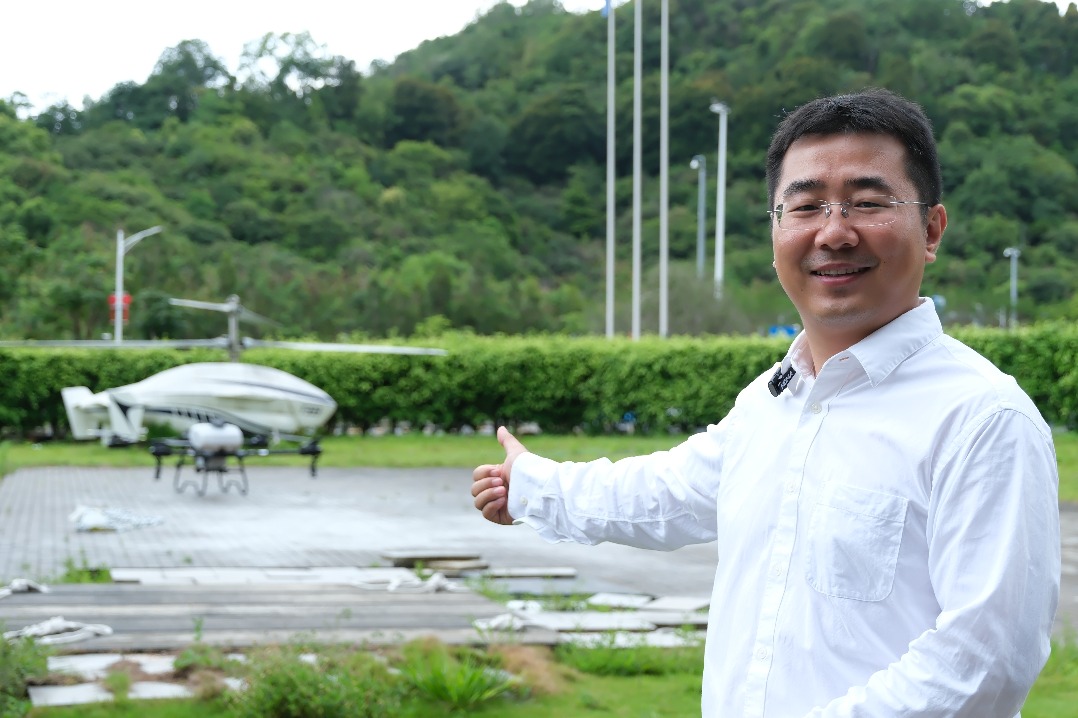Income distribution reform critical

Potential of household consumption should be released to spur economic growth

China will expedite efforts to foster the new dual-circulation development paradigm in the 14th Five-Year Plan period (2021-25). There is still immense potential to be tapped from domestic circulation. The experience of industrialized nations, such as Japan and the Republic of Korea, indicates that after a country's per capita GDP exceeds $10,000, the main force driving economic growth will shift from investment to consumption, especially household consumption.
The substantial increase in residential income and improvements in the social security system since the launch of reform and opening-up has laid a solid foundation for China's domestic economic circulation. We should also note that there is still much room to deepen reform of the income distribution system and properly narrow the gap in income distribution to help raise the level of consumption by a large margin.
It is noteworthy that the growth rate of migrant workers' salaries has been declining since 2015.
It is a common practice of the developed economies to use the basic social security system-enforced in the form of national legislation-to adjust the primary distribution gap. China's social security system still has a long way to go in playing its due role in narrowing the gap in the primary distribution process. According to research conducted by the China Institute for Income Distribution at Beijing Normal University, the social security system in the European Union has enabled its Gini coefficient to decrease by 40 percent. In China, the social security system has only enabled its Gini coefficient to decrease by 12.3 percent.
During the 14th Five-Year Plan period, it is imperative that the principle of more pay for more work be upheld. The priority is to protect earned income and increase the pay of workers, especially migrant workers, and thus increase the proportion of the primary distribution that goes to wages and salaries and narrow the distribution gap.
A system that gives full play to the vitality of various production elements should be fostered and the incentive mechanism oriented toward increasing the value of knowledge should be strengthened. It is important to enable elements such as capital, management and technology to play a more active role in production and operations so that the innovative potential of entrepreneurs, professional managers and researchers can be better unleashed and the middle-income group can be expanded.
With the success of poverty alleviation in rural areas, the level of subsistence allowance across the country should be increased. It is important to ensure the rights to compulsory education and professional training for low-income families and enable them to climb up the social ladder.
The urbanization of rural migrant workers should be accelerated.
An unimpeded channel for rural migrant workers to obtain hukou, or household registration, in cities should be ensured. A key measure to solve the problems of migrant workers is to promote the free and reasonable flow of labor between urban and rural areas.
The property income of rural migrant workers and farmers should be increased. The outflow of rural migrant workers has left at least 20 percent of homes in rural areas vacant-40 percent in coastal regions. The difficulties in the transfer of rural homesteads have left villagers unable to increase their property income, and thus it is important to enable the huge potential wealth that could be derived from rural homesteads and collective land used for construction to be transferred into property dividends that rural migrant workers and farmers can trade in a fair manner.
The employment environment for self-employed individuals should be optimized. The overwhelming majority of the urban self-employed are low-income groups and they are faced with the challenges of unstable work and incomes.
Deepened reform of the basic social security system should adhere to the direction of fairness.
Reforms should promote equitable access to basic public services. Great changes have taken place in China's social and economic life over the past 40 years of reform and opening-up, and an excessively large income gap has become increasingly prominent. Reform of the basic social security system in the near future should give more priority to improving its fairness and enhancing its nature as universal protection so as to narrow the gap during the primary wealth distribution process and enable the fruits of development to be better shared by all.
Steps should be accelerated to bring the basic pension system for urban employees under national unified management, balance the burden among different areas to contribute to the pension system and enable the reasonable flow of human resources nationwide. It is important to unify the basic pension schemes for urban employees in line with international practices, and in terms of contribution rate, contribution bases, fund management and implementing agencies. The work to replenish social security funds through the injection of State capital must be conducted on top of the national unified management of the basic pension schemes for urban employees.
In addition, public investment in sectors that are closely related to the social security system, such as aged care, healthcare and education, must be scaled up and combined with the application of high technology, such as big data analysis, remote medical diagnosis and online education. Even though investments into aged care, healthcare and education will not yield short-term economic benefits, they can alleviate the long-term worries of the public and increase their willingness to consume. Such investments can also exert a long-term influence on public health, social stability and the training of people, benefiting future generations.
The author is head of the China Institute for Income Distribution at Beijing Normal University and director of the Academic Committee of the China Society of Economic Reform. The author contributed this article to China Watch, a think tank powered by China Daily. The views do not necessarily reflect those of China Daily.


































